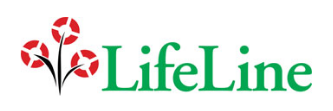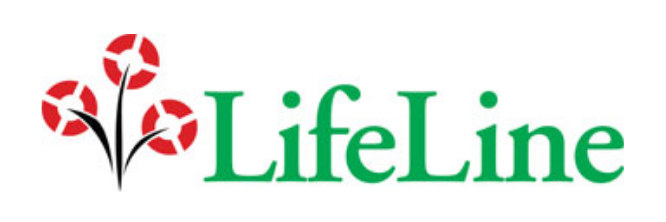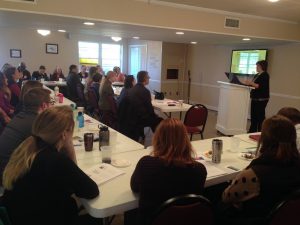The following topics are available from LifeLine as of January 2016.
Special Education Basic Rights Workshop*
This workshop is designed for parents of children in special education or that might need special education. Come and gain a working knowledge of special education laws, including your role in the development of an appropriate education program (IEP) and how to be an effective partner with the school team in the process.
(This workshop is the basis of and prerequisite to all of our other special education workshop topics.)
(Tennessee & Georgia versions available)
(3 hours)
Introduction to Student Support Services*
This workshop is designed for parents of children in student support services or that might need student support services. Come and gain a working knowledge of special education laws, including your role in the development of an appropriate education program (IEP) and how to be an effective partner with the school team in the process.
(This workshop is the basis of and prerequisite to all of our other special education workshop topics.)
(Georgia Specific)
(3 hours)
Early Childhood Transitions (Early Intervention to Preschool/Kindergarten)*
This is an educational and skill-building workshop for families of infants, toddlers, and young children with disabilities. Parents will receive the following information:
- Basic Rights information regarding services and protections available for children under IDEA–Birth to three (Early Intervention — Part C) & Age 3 and up: Special Education (Part B)
- What to expect when a child is transitioning from services at age 3 to services in the school system
- Information on other transitions such as from pre-school to Kindergarten
- Details about an appropriate IFSP (Individual Family Service Plan); IEP (Individualized Education Program)
- Come and learn about your part in your child’s education at this important stage of early childhood!
(2 hours)
Section 504*
Section 504 of the Rehabilitation Act protects children with disabilities from acts of discrimination and exclusion because of their disability. Are you wondering if this workshop would benefit you? If you answer “yes” to any of the following questions, you may want to attend this training. Has your child ever been excluded from a field trip or school function because of “behavior”? Does your child have a disability but does not meet the criteria for IDEA Special Education? Are there accommodations needed at school that relate to your child’s medical/health condition? Is your child currently receiving Special Education? The workshop will cover the special supports a child with a disability is entitled to so that they can be successful in school. It will also cover the protections available to children to protect them from acts of discrimination and exclusion.
(3 hours)
RTI (Response to Interventions)/Evaluations & Assessments*
For parents of children in special education and parents of children who may need special education, it is important to make sense of evaluations and assessments. Come and learn about your part in your child’s special education, including understanding and using evaluations in the development of an appropriate education program.
(2-3 hours)
IEP Development Workshop*
This is a hands-on workshop that is designed for parents who have attended the Basic Rights Workshop and are ready for the “Next Step”–fine tuning the IEP document to reflect all of your child’s unique needs to lead toward positive educational outcomes. Participants may bring their child’s IEP and learn specific techniques to use in developing goals and objectives designed to meet their child’s individual needs.
(2-3 hours)
Writing Functional IEPs
This workshop was created specifically for educators. Goals and objectives are the driving force behind an Individual Education Program, but many teachers have been given little training in developing good goals or the Present Levels of Performance on which the goals are based. Discover the components of good goals and objectives that will change how you write them. Learn how to make goals that are functional, measurable, and effective. Your IEP team and your students will see the results.
(1hour)
The Next STEP: IEP Planning and Instructionally Appropriate IEP’s*
This workshop is designed to enable participants to understand and fully participate in the IEP Team process. Participants will learn:
- The types of needs and services that can be provided through “special education” services.
- The information on the Individual Education Program (IEP) document and where it goes.
- How to express parent concerns and ensure they are addressed by the IEP team.
- Understand the process to set and write Measurable Annual Goals.
- Strategies to prepare for effective participation in IEP meetings for their children and youth with disabilities.
(2 hours)
Parenting Intentionally for Independence-Early Planning for Transition: One Family’s Story
Parent Lisa Mattheiss tells the story of Emily, who was born with spina bifida, hydrocephalus and more than a dozen other diagnoses. She shares the very intentional choices that she and her husband Jeff have made in Emily’s first 16 years of life as they prepare Emily for independently reaching her potential, physically, emotionally, cognitively, and spiritually.
(1-1/2 -2 hours)
Standing up For Your Child Without Stepping on Toes
(Communication/Negotiation/Conflict Resolution Strategies)*
There are three characteristics parents reflect when communicating. Which one are you? Come and find out! Would you like to learn how to better communicate what your child needs? Does your child have an educational plan that is not being carried out and you want to know what steps to take? If you answered yes, then this workshop is designed for you! Come and learn about your part in your child’s special education, including the skills you need to work with the schools in the development of an appropriate education program (IFSP/IEP) for your child and the process to follow if you are having difficulties making the special education system work.
– Partially based on the book Standing Up for Your Child Without Stepping on Toes by Vicki Carauna.
– Partially based on a STEP, Inc. Communication/Negotiation/Conflict Resolution Workshop.
(3 hours)
 Bullying: Prevention & Resolution
Bullying: Prevention & Resolution
This workshop discusses ways to prevent bullying as well as ways to resolve bullying that may already be happening, whether by students, or educators, in the educational setting.
(2-3 hours)
Guardianship/Conservatorship/Estate Planning
This workshop covers guardianship, conservatorship and how to make intentional financial decisions that will protect the financial assets and public assistance of a child with special needs. Special needs trusts are defined and discussed as well. This workshop is presented by Martin Pierce, Attorney at Law and Jeffery Babb, Financial Planner. Additional input from Cumberland Trust. Workshop ends with a panel Question & Answer session.
(2 hours)
How FMLA Can Help Working Parents Care for Children with Special Needs
Presented by a working parent using Family Medical Leave Act as she parents a child with special needs. Presenter works for a major insurance company’s Leave Management Department where she assists families every day with using FMLA in order to care for family members.
(1 hour)
Inclusion & Least Restrictive Environment*
If you have a child with a disability and would like to know more about your child’s right to be educated with students who do not have disabilities and you have questions on how to make inclusion work, this workshop is for you. You will learn about: How placement decisions are made. What is meant by “continuum of placement options” being available. You will also learn how to demonstrate the need for additional supports in the general education classroom. What are the benefits of inclusion? The requirements for students pre-school through high school will be discussed.
(1-2 hours)
Accommodations vs. Modifications
Does your child learn differently? Are they overwhelmed by the volume or expectations in the classroom? What happens when your child is not able to do their class work as it is presented to every other child in the classroom? Do they fall behind? Fail? Give up? They do not have to. Join us for a workshop on possible modifications and accommodations that address multiple learning styles and varying levels of ability. Whether you are a parent, paraprofessional, educator, home educator, or special educator, join us to share your experiences as well as gain resources for alternate presentation of classroom material.
(3 hours)
Thinking Outside the School Box-High School Transition Planning
Many times parents believe the school is solely responsible for their child’s high school transition to adulthood. This transition process is a team endeavor, however. This workshop covers other team members and how the natural supports for a child can become the most valuable means of helping him reach his goals as an adult. This workshop includes checklists and ideas of ways to be intentionally involved and build community long before families face transition decisions. The solution to transition doesn’t just lie within the four walls of the school. Think outside the school-box!
(2 hours)
Transition to Adulthood*
This workshop is designed for individuals with disabilities and their families who are in the process of preparing for transition and professionals involved in the transition planning process. Participants will learn about issues such as the following: Your rights & role in transitioning from High School; How to develop an appropriate Transition Plan; Employment; Independent Living; Keys to navigating the adult service delivery system including Social Security, Vocational Rehab., Medicaid Waiver, and many others.
(2-3 hours)
Transition Academy
This annual conference is presented annually. Location can be Chattanooga, TN or Northwest Georgia in collaboration with school districts.
(4-6 hours)
What happens when the school bus stops coming? This is an important question for a student or individual with disabilities and their family. Don’t wait until the bus stops coming to plan for how a student will spend their day and the rest of their life. In Tennessee, transition planning should start when a student is 14, (Georgia, 16) and should continue until plans and outcomes result in the individual continuing to live, learn, play, and contribute in their community in a way that they are happy, and supported or protected when needed. The Transition Academy is for students and individuals with disabilities and the family, teachers, Voc. Rehab. staff, members of their circle of friends, and other professionals who care for and about them and wish to learn more about how to support them as they become adults. Presenters, including students and individuals with disabilities, will share information that will assist those attending as they think about answer such questions as:
- What services and support s now provided by the school will no longer be available?
- What changes at age 18?
- Where and how does someone get adult services?
- Why is it important to make plans early?
- What role does the family, school and other providers play in planning?
- What are the timelines and rules of the adult service delivery system, including: Social Security, Vocational Rehabilitation, Medicaid Waiver?
 Introduction to Students with Disabilities
Introduction to Students with Disabilities
This workshop was created to give college education majors a general overview of special education processes, using people first language, parent communication strategies, and a general introduction to inclusive education.
(1 ½ hours)
Including Students with Significant Disabilities
This workshop will cover a very brief description of several diagnoses and the significant challenges that frequently come with those diagnoses. We will also discuss ways to include students with those more significant disabilities in general education classrooms. We will touch on ideas for behavior, communication, positioning and mobility, functional limitations, cognitive limitations, allergies, and self care. Teachers will leave with ideas for accommodations and modifications that are frequently effective for students with significant and multiple physical and cognitive disabilities.
(2 hours)
ParaProfessionals: Extra Piece or Missing Piece?
This workshop discusses the role of a parpro, how to establish roles based on needs of children/classrooms, what is NOT a para’s role, behavior and communication strategies with students. Also discussed are the communication strategies necessary for interactions with parents, teachers, and other related services personnel. This workshop is taught by a parent who also serves as a paraprofessional.
(1 ½ hours)
The Role of Mobility & Related Equipment in Developing Independence
This workshop was created to help employees of a local mobility company understand the long-term impact of equipment access for their clients. Based on the story of one child, birth to 13, this presentation was created to share the possibilities and opportunities opened to the child, and the difference various equipment made in developing independence, creating access, and enabling success alongside peers. Presented by a parent, this presentation reinforces to professionals, therapists, and employees the difference they make in lives of those they serve.
(1 hour)
IN DEVELOPMENT: Foundations: Teaching Social Skills in Early Childhood
This workshop will cover some of the reasons behind delays in social skill development and ways to incorporate development of those skills into the early childhood classroom. The workshop was created by a parent, paraprofessional, and preschool director based on a training by a behavior analyst.
Using the Power of Your Personal Story
This workshop was created to enable parents to harness the most powerful parts of their own personal story and develop the story into effective presentation of varying lengths, based on target audiences. This workshop is geared for those families who have an interest in using their story to make a difference in the lives of their own children as well as more broadly in systems change. Based on a workshop created by PACER’s FAST Project, it has been further developed by LifeLine staff specifically based on local parents needs. Whether parents are planning to call, write, or meet someone to share their story, this workshop will help them develop a short story as we ll as an “elevator speech” that will be powerful and effective. Parent trainers and guest speakers will offer examples of their stories to attendees. Time will be allocated to begin developing the attendee’s own personal story.
(3 hours)
Parenting- When You Have a Child with Special Needs
Parenting is hard work. When you add in the additional effects of raising a child with special needs, it becomes even more difficult. Throw siblings in the mix…and WOW! Parenting can be overwhelming! Join us for a frank discussion of tried and true parenting strategies and how to accommodate our parenting style for those children who learn differently. Balancing parenting strategies with siblings will also be part of our discussion.
(1 1/2 hours)
Caregiving 101
My child has a diagnosis. Now what? How do I navigate all the new systems and processes that have now become part of our lives? How do I process the changes that this will bring to our family – medically, emotionally, financially, physically, and spiritually? There is hope! Seasoned veteran parents will offer tips and strategies for navigating the waters that some days threaten to drown you. We’ll equip you to thrive, not just survive in your new normal.
(2-3 hours)
Caregiving – Dealing with Depression, Burnout & Exhaustion
Two moms with more than 35 years of caregiving between them will be sharing their personal journeys. Join us as we learn from their stories and talk about ways to combat these feelings and pro-actively create an environment of support and healthy responses to caregiving requirements. Join Michal Jones and Lisa Mattheiss as they share their journeys. You will realize that you are not alone in yours.
(2-3 hours)
Attention Deficit Disorder — What is it?
Different Types of ADD/ADHD
Common Myths about ADD
ADD/ADHD in the Classroom—Increasing Participation with Inclusion StrategiesDo you think your child may have attention deficits, but don’t know what it is or what to do about it? Do you know for sure the deficits exist, but don’t know how to best to help him learn? Are you an educator who is struggling to keep your students involved and making progress? Whether you are a parent, professional, homeschooling parent, or educator, join us for this workshop and learn to support students with ADD/ADHD.
(3 hours)
Description of Autism Spectrum Disorders
Myths About Autism
Sensory Integration Issues
Educational Strategies
Accommodations
Modifications
And Resources
This workshop will cover a description of Autism Spectrum Disorders as well as some of the challenges that frequently come with the diagnosis for children. We will also discuss sensory integration disorder. We will talk about educational strategies and accommodations and modifications that are frequently effective for children on the autism spectrum in the classroom.
(2 hours)
Sensory Processing Disorder
(1 1/2 hours)
This workshop will cover a description of Nonverbal Learning Disorders, and other similar learning disorders that can affect a child’s ability to access classroom activities and academics. We will talk about educational strategies and accommodations and modifications that are frequently effective for children with learning disabilities in the classroom.
(2 hours)
This workshop will cover a description of spina bifida, hydrocephalus, and related diagnoses. We discuss medical and educational impact of spina bifida as well as strategies for encouraging independence both at home and in the classroom. Taught by the parent of a child with spina bifida, this is a practical discussion based on personal experiences.
(1 ½-2 hours)
This workshop will cover a description of Down Syndrome and related diagnoses. We will discuss both medical and educational impact of Down syndrome as well as strategies for encouraging inclusion and independence both at home and in the classroom. Generally taught with the parent of a child with Down Syndrome, this is a practical discussion based on personal experiences.
(1-1 ½ hours)
*Based on workshops created by STEP, Inc. www.tnstep.org. Used with permission.
^Based on a workshop created by Disability Rights Tennessee www.disabilityrightstn.org/ Used with permission.
Additional Information:
Every workshop includes a packet of training materials for attendees to keep. Whether you are looking for a parent training, educator/professional training, or staff training opportunity, we likely have a workshop that will be helpful. Custom workshops can be created as well.
Workshops and Training Events are funded by fees for services and materials. Beginning October 1, 2012, there will be a minimal charge for workshop materials. Support groups, organizations, non-profits, schools, churches, etc. may choose to sponsor a training opportunity and offer it free of charge for families or staff. Please contact us for more information about training fees, mileage and travel rates, and to book training events.
Lisa Mattheiss, Executive Director
LifeLine, Inc.
1400 McCallie Avenue
Suite: 112
Chattanooga, TN 37404
Tel: 423-622-4007
lisa.mattheiss@lifelinefamilies.org
 Click Here to print this list in PDF format.
Click Here to print this list in PDF format.
Click Here to fill out a form requesting LifeLine participation at your church, school, or community event or training. We will consult our calendars and get back with you as soon as possible.


